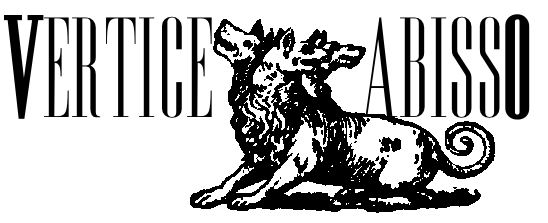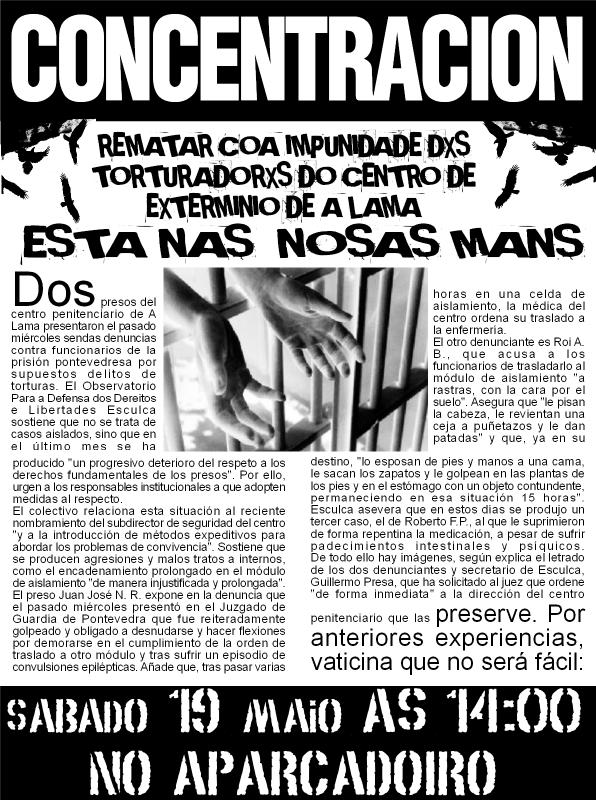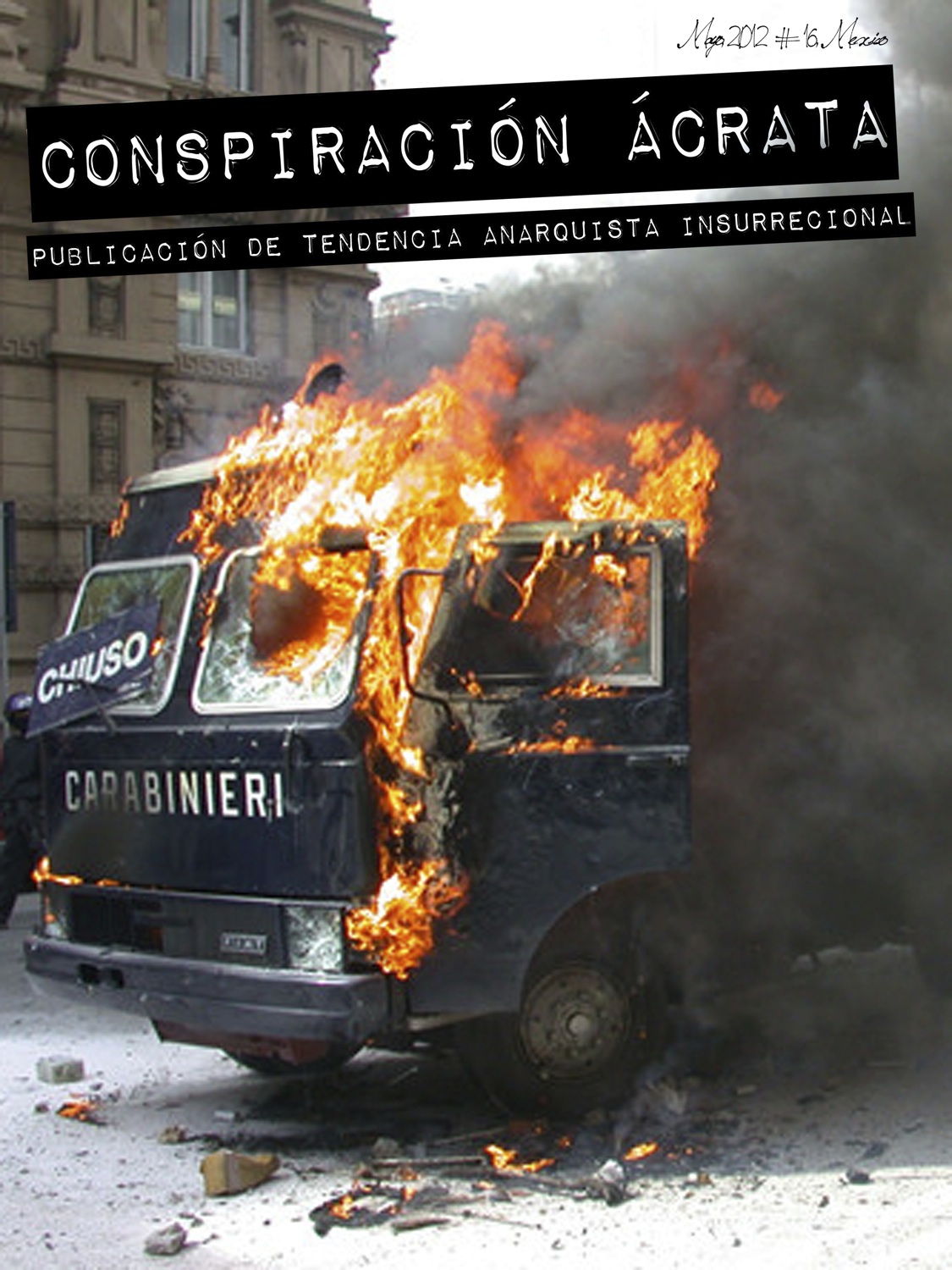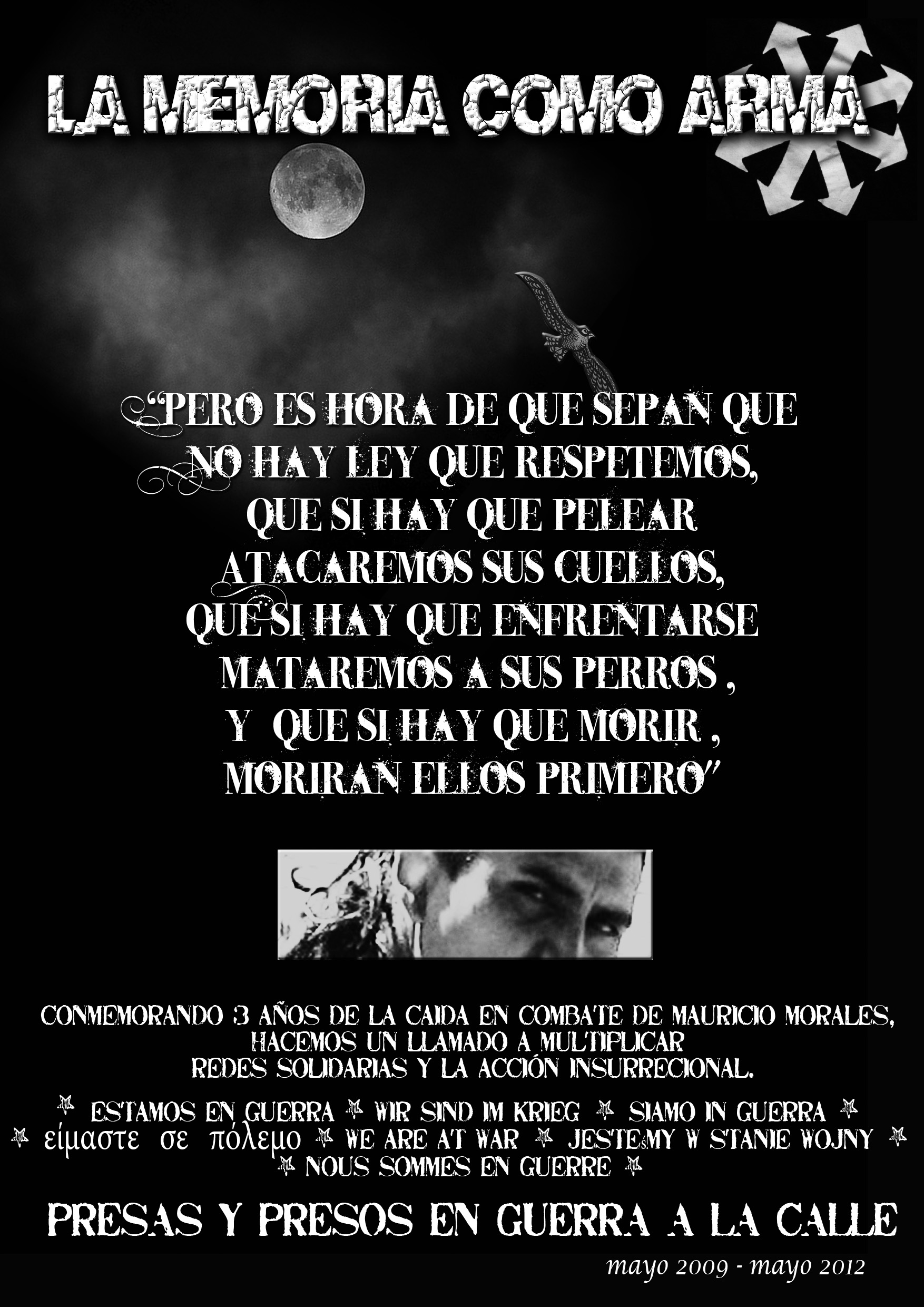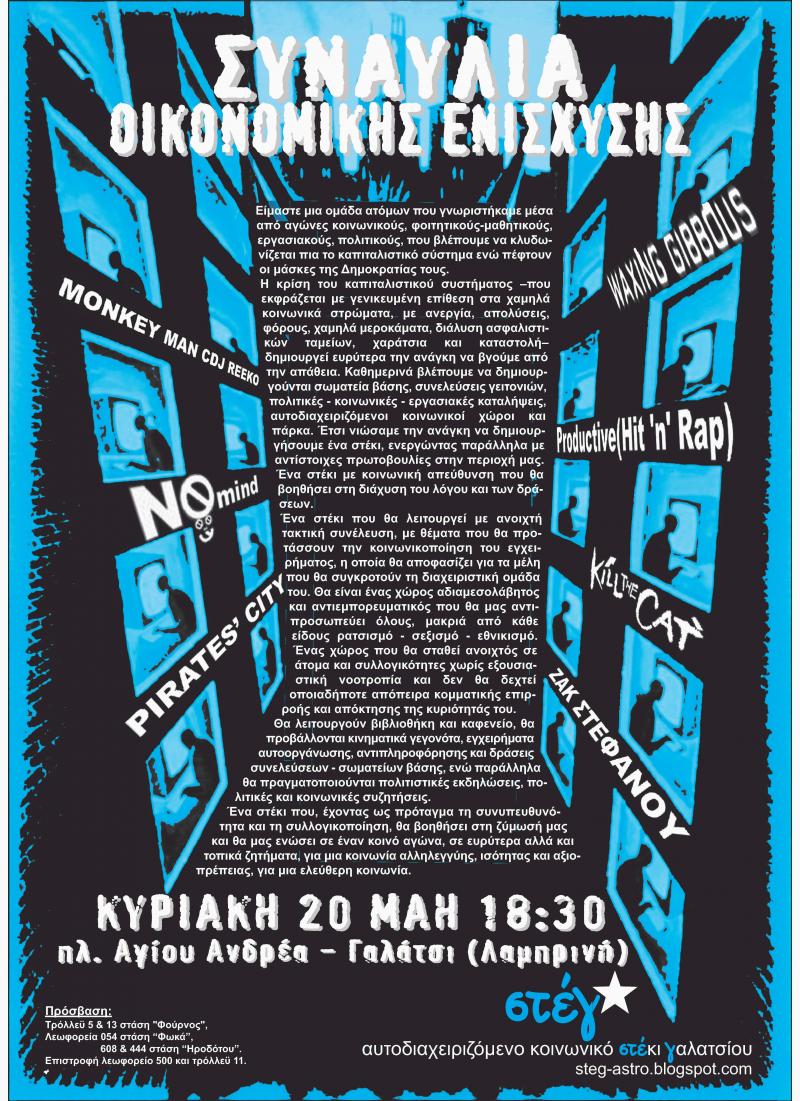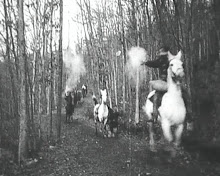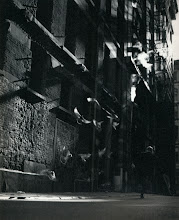
El largo y cálido verano de los presidios españoles se ha adelantadoa la meteorología. El año pasado, también en primavera, y después al terminar la cnícula, fueron ocupadas las terrazas de varios centros penitenciarios desde donde los presos clamaban a voz en grito su protesta.
Lo que no fue más que una explsión de rabia e ira, por la amnistía discriminante entre detenidos políticos y comunes (o sociales, como prefieren llamarse ellos), terminó con la organización espontánea, semanas después, de la coordina dora de Presos en Lucha (COPEL).
La irresistible ascensión de COPEL, facilitada por los contraproducentes métodos de la administración de justicia, que ha dispersado la semilla por todos los presidios, se debe a su escueto y contundente programa reivindicativo: Amnistía general como paso previo a la reforma democrática del Código Penal, supresión de las jurisdicciones especiales, supresión de la ley de Peligrosidad Social y Salud Pública, supresión del reciente reglamento de prisiones y mayor apoyo y comprensión social para la situación de los presos y sus familias.
"Esto es ya una lucha hasta el final" se ha podido leer en los periódicos con motivo de la última huelga, que, a la hora de escribir estas lineas, mediado el mes de junio, no tiene visos de extinguirse. "La solución no está en que nosotros salgamos de la cárcel si no en que cambie el sistema penitenciario". Esta declaración, de alcances mucho mas inmediatos, parece reducir las reivindicaciones de COPEL a una sola, de un realismo atroz. Como en la conversación que sigue, podremos comprovar, COPEL es consciente de que mientras no se arreglen las cosas en el país, los delicuentes seguirán siendo el resultado lógico de la postración de las clases más débiles. La reforma penitenciaria es el paso primero, imprescindible, para poder vivir...en la cárcel. ¡sólo vivir!
inquietud politica
-No, no; si quereis escribir algo sobre los presos comunes, deberiais hablar antes de la situación de las cárceles. Desde las acciones de Carabanchel de febrero pasado, hay varios compañeros al borde de la muerte por falta de asistencia médica.
Nos lo cuenta un miembro de la Coordinadora de Presos en Lucha (COPEL), que se encuentra en libertad desde hace unas semanas.
-Además eso de que han soltao a mil y pico presos comunes en aplicación del indulto, es una exageración. Si vais a la puerta Carabanchel veréis que no para de salir gente, todos los días sale alguien. Pero de ellos son pocos los que salen por el indulto. La mayoría sale en libertad condicional, porque se les acaba la condena...pero muy pocos por el indulto. A lo más, puede ser que gente a la que le quedaba poco para cumplir, vea acelerada su salida, pero...
Tiene treinta y tantos años, o al menos lo aparenta, se llama José María. No tiene miedo ni verguenza de manifestar su condición de excarcelario. La inquietud política que se cuela por todos los poros de nuestra nación llega con una intensidad sorprendente a los propios presos comunes que hablan de "desenmascarar la legalidad burguesa" de "combatir a fondo la hipocresía". Aunque su recelo hacia los partidos políticos, que hasta ahora poblaban de militantes las cárceles españolas, es grande.
-Los presos comunes siempre hemos considerad a los políticos como unos privilegiados. Además, hasta que no hemos sido nosotros mismos los que nos hemos propuesto luchar contra la injusticia carcelaria, no se han acordado de nosotros.
deficiente asisténcia médica
Este movimiento de los presos comunes empezó realmente en septiembre del año pasado, a raiz del motín de Carabanchel, que tuvo un eco nacional extraordinario, y provocó acciones de solidaridad en otras prisiones y penales.
Un nutrido grupo de familiares y ex presos, se recluyeron en una iglesia del popular barrio madrileño de Moratalaz, y pusieron los cimientos de la Asociación de Familiares y Amigos de Ex presos comunes.
La enorme represión que se desató sobre los presos, fue más o menos reducida al llegar la fiesta de la Merced, a finales de septiembre. Pero las sucesivas ampliaciones de la amnistía y el indulto, que beneficiaba principalmente a los políticos, incidió en el animo caldeado de los comunes.
El 20 de Enero se producen actos de coacción sobre varios presos con motivo de la desaparición de una pistola. La respuesta de los comunes es una huelga de hambre. La COPEL se fortalece en esta acción, y durante un mes se producen en las galerías de Carabanchel asambleas que sorprenden a los elementos más avanzados por la solidaridad demostrada por unos hombres acostumbrados al individualismo más fatalista.
A finales del mes de Febrero se estaba preparando una huelga de talleres, en respuesta por los bajisimos sueldos recibidos. La dirección de la cárcel actúa, y en la madrugada del 19 numerosos funcionarios y policías entran en las celdas de los elementos más significados de COPEL, con la intención de trasladarlos a otros presidios. Los comunes han bautizado estos días como "las noches del terror". Grupos de presos se resisten cortandose las venas y tragando mangos de cuchara y trozos de cuchillas de afeitar. Otros suben a las azoteas del centro para exteriorizar el conflicto.
Hoy en día son todavía numerosos los presos que tienen en sus estomagos objetos tragados. El caso de Julián Bustillo Raña, trasladado al penal de Cartagena con un mango de cuchara en el estomago, el cuerpo inflamado y sinasistencia médica, es el que más preocupa a los presos y ex presos. En su situación, pero no tan graves, se hallan Carlos Giménez Mateo, Gregorio Peña jiménez, Alfonso Utrilla Requena y Fernando de la Barrera González, todos en Carabanchel.
Los miembros de la asociación reclaman la asistencia médica de estos hombres y de otros cuyas filiaciones se desconocen por encontrarse en celdas de castigo.
-La asistencia médica en los centros penitenciarios españoles es horrorosa -dice nuestro comunicante-. Fruto de nuestro trabajo ha sido la creación de comités de barrio en las zonas más populares de Madrid (de donde salen muchos presos, por las condiciones sociales), que reclaman la amnistía total, la reinserción social del ex preso, la reforma de las instituciones penitenciarias, el levantamiento de las sanciones y la derogación de la ley de Peligrosidad Social, según la cual cualquier ex preso puede ser detenido por sus antecedentes si no justifica un trtabajo y una residencia. Y ya me dirá como se encuentra un trabajo en este país siendo encima ex preso.
reinserción
Hace poco se celebró en Madrid una semana de solidaridad con los presos comunes, organizada por una Asociación Para el Estudio de los Problemas de Presos y Ex-presos. Decenas de intelectuales la avalaban.
Con todo, uno de los problemas más graves que tienen los ex-presos es el de su vuelta a la sociedad. No es extraño que al poco de dejar la penitenciaria vuelvan a ella. El hambre y la desesperación les obligan a volver a delinquir, si es que robar en una pasteleria o en una tienda de comestibles puede llamarse delito.
Los casos de robos de productos alimenticios están creciendo de un modo muy significativo en los ultimos meses en todas las capitales españolas. Y las penas son lo suficientemente duras para convertir al delincuente ocasional en delincuente habitual.
La Asociación de Familiares y Amigos y Ex-presos está intentando montar un taller en San Blas, uno de los barrios más populares de Madrid, para dar trabajo sobretodo a los jovenes ex-presos, que en otro caso no tienen más salida que la delincuencia.
la COPEL
-La COPEL, como sabéis, quiere ser el organismo que intenta aglutinar a todos los presos sociales. Y al reivindicar la amnistía, no nos quedamos ahí, sino que acompañamos esta reivindicación de otras que la completan y dan un sentido. Al reclamar, pues, la amnistía para todos, políticos, sociales, represaliados por motivos laborales, se trata de hacer ver que la dictadura es una de las causas fundamentales que ha fomentado la delincuencia y todas las injusticias. La dictadura ha sido la responsable, con sus leyes especiales, como la de Peligrosidad Social, de que se encierre en la cárcel a multitud de persnas inocentes, sólo por la sospecha de que podían volver a delinquir. Del mismo modo, la dictadura, al agudizar las diferencias de clase, ha creado las condiciones para que aparezcan los marginados sociales. Por ello, la reivindicación de amnistía es una forma de pedir que se haga tabla rasa con el franquismo, con sus leyes, con su moralidad.
-Esto quiere decir que vosotros vais más allá de la reforma Suárez, ¿no?
-Por supuesto. Para nosotros la reforma Suárez deja de lado los intereses populares, y desde luego las aspiraciones de los presos sociales y de los marginados. En este sentido, la reforma que nosotros queremos, reclamamos, del aparato judicial y penitenciario se veria minimamente afectada por la reforma Suárez, que nosotros sepamos (y todavía no sabemos del cierto si las nuevas Cortes van a ser Constituyentes), la reforma de estos aparatos no está prevista. Por ello lo que intenta la COPEL es que el movimiento popular, dirigido por sus partidos verdaderamente populares, comprenda nuestras reivindicaciones, relativas a las leyes represivas del franquismo, al Código Penal y a las instituciones penitenciarias, y las haga también suyas. Para nosotros es claro que todo lo que nosotros reclamamos son meramente reivindicaciones democráticas. Nosotros no pedimos pues, que se abran las puertas de las cárceles, sino que esto se vea acompañado de otras medidas que terminen con las condiciones que permiten la delincuencia.
6 años por robar 6 camisas
-en vuestros manifiestos se habla con frecuencia de la sociedad socialista como objetivo...
-Efectivamente, en uno de nuestros manifiestos más recientes, laCOPEL dijo que sólo en una sociedad socialista donde fuera abolida la propiedad privada y la explotación, desaparecerían las causas de la delincuencia. No obstante, somos conscientes de las limitaciones y creemos que las reivindicaciones que propugnamos habrían de ser satisfechas en una democrácia. De este modo, pedimos un puesto de trabajo para todos los ex-presos, un seguro de desempleo para los ex-presos que han trabajado en talleres, la desaparición de antecedentes a la hora de encontrar un puesto de trabajo. Esto son reivindicaciones democráticas. Sino la petición de amnistía queda coja: la gente sale de las cárceles, se encuentra igual que antes, y a los pocos meses todos han vuelto a las prisiones.
Ahora bien, hay que analizar bien este problema en las sociedades socialistas actuales. Para nosotros ninguna sociedad se puede llamar socialista mientras sean perseguidas conductas que en la sociedad burguesa son marginales, como el homosexualismo, por ejemplo. El socialismo, además de socializar los modios de producción, debe proponerse la transformación de las costumbres y del derecho burgués. Y en lo que respecta a la delincuencia, que es lo que a nosotros nos interesa ahora, en una sociedad socialista no existiría, no tendría por que existir. Aunque como está claro que esto requiere un proceso, en una sociedad socialista donde todavia se delinquiera, nosotros abogamos por una jurisprudencia y unas instituciones penitenciárias no represivas, sino reformadoras de la personalidad. En definitiva se trata de diferenciar dos conceptos de la justicia, el de justicia burguesa y justicia popular. Es decir, que la justicia es un concepto de clase, y la que ahora nos reprime es una justicia burguesa, y no solo en España, claro. El ejemplo más claro y más reciente, es el del juicio de un chaval al que por el robo de seis camisas se le condenó a seis años de cárcel. Esto, en unas condiciones como las actuales, de degradación del nivel de vida, de paro creciente y de disminución de los salarios, es tremendo. Y hay que pensar que si las condiciones siguen empeorando, habrá más robos, claro; habrá más gente que robe camisas, más señoras que roben en los supermercados... y lo que tememos es que la justicia se ponga todavía más dura.
Después de la cárcel, ¿que?
-¿Qué es lo que hace un hombre que sale de la cárcel, con la firme determinación de no delinquir, y se encuentra si trabajo?
-En estos momentos, lo que puede hacer un joven o un hombre maduro que ha pasado unos años en prisión, es sencillamente nada. Puede que encuentre trabajo durante una temporada (aunque en el 99% de los casos se le va a negar por los antecedentes), pero en cuanto se enteren que es ex presidiario lo ponen en la calle. A parte de eso, la formación profesional que se le proporciona en la cárcel es prácticamente nula. Se le hace trabajar en talleres alienantes, se le deja en la calle después sin ningún tipo de seguro de desempleo, ni nada. Pero, en definitiva, lo peor es que, aunque tenga una calificación para trabajar, le va a ser negado cualquier empleo por sus antecedentes. Por nuestra parte, lo que estamos intentando es organizar a los presos que salen a la calle, y crear asociaciones que exijan el cumplimiento de estos derechos: es decir, para que exijan el derecho a volver a integrarse en la sociedad.
Por ello es importante hablar del concepto que nosotros tenemos de rehabilitación. Nosotros entendemos que la Dirección General de Prisiones no pretende la verdadera rehabilitación del ex-preso. En primer lugar no se proporciona a los presos una formación profesional. Los cursos del PPO que se imparten no sirven más que para cubrir el expediente. Por el contrario, a los presos se les mantiene en talleres donde el trabajo es monótono y enajenante, y se les paga una miseria. Para nosotros, la rehabilitación por el trabajo exige, primero, una formación profesional exahustiva, sobre todo a los jóvenes; segundo, unos talleres en relación con esa tarea; tercero, salarios comparables a los de la calle, con seguridad social incluida. En realidad, el preso normal que hay en las prisiones, el delicuente contra la propiedad privada, no tiene nada de rahabilitable, no es un malvado. Si han hecho algo punible ha sido por necesidad, por esa circunstancia de que todo delito tiene un contexto social. Por ello, para nosotros la única rehabilitación consiste en sacar al preso de su conciencia individual, escéptica y pesimista, y dotarle de una conciencia reivindicativa social.
Martí Llorens - Ozono
http://www.sindominio.net/desdedentro/textos/Dosscopel/mencerrada.htm

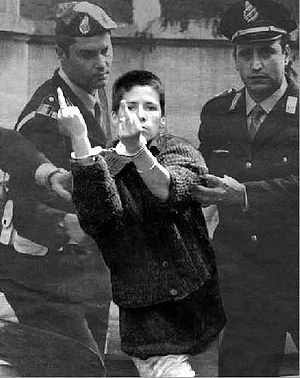

















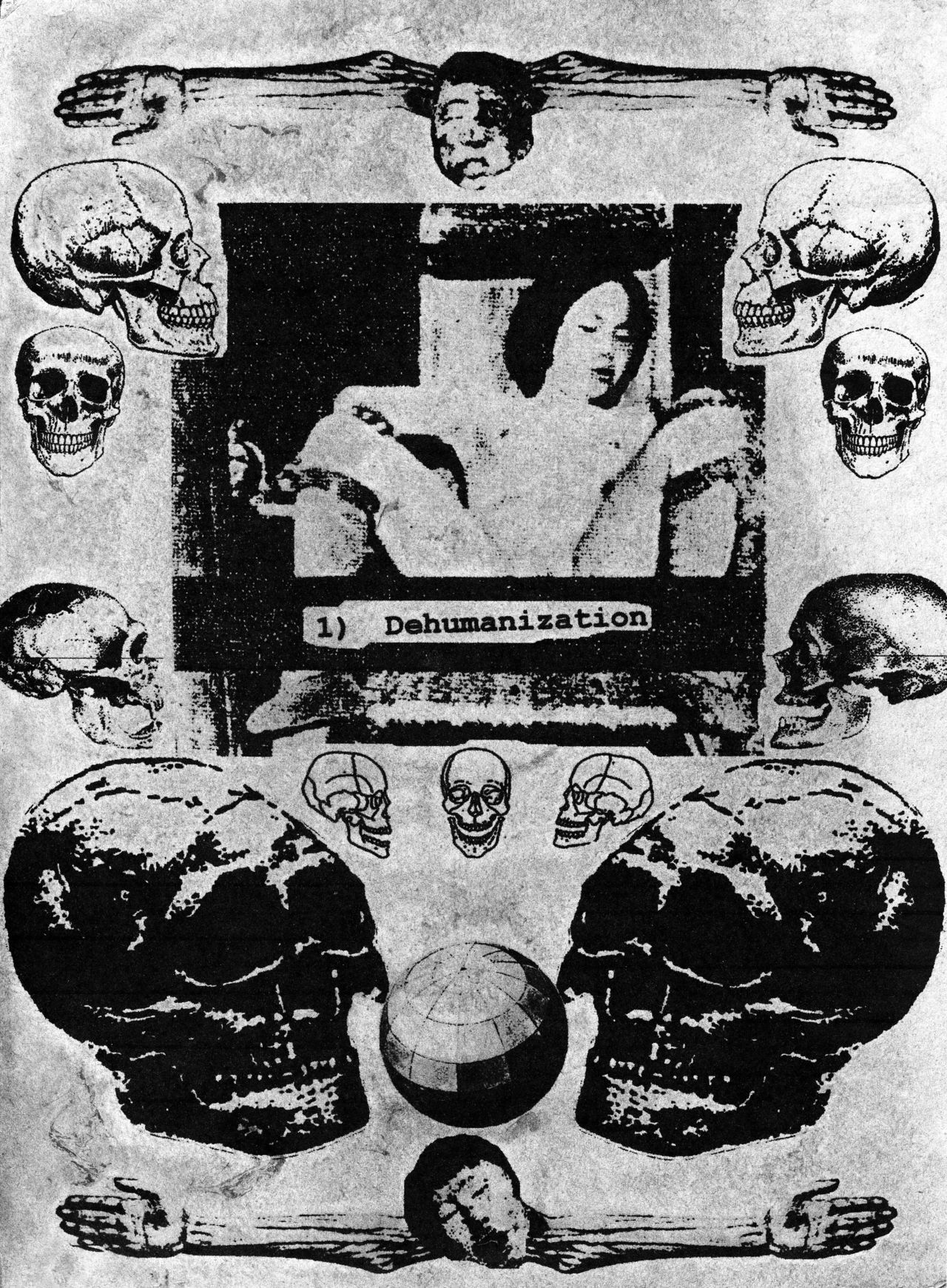



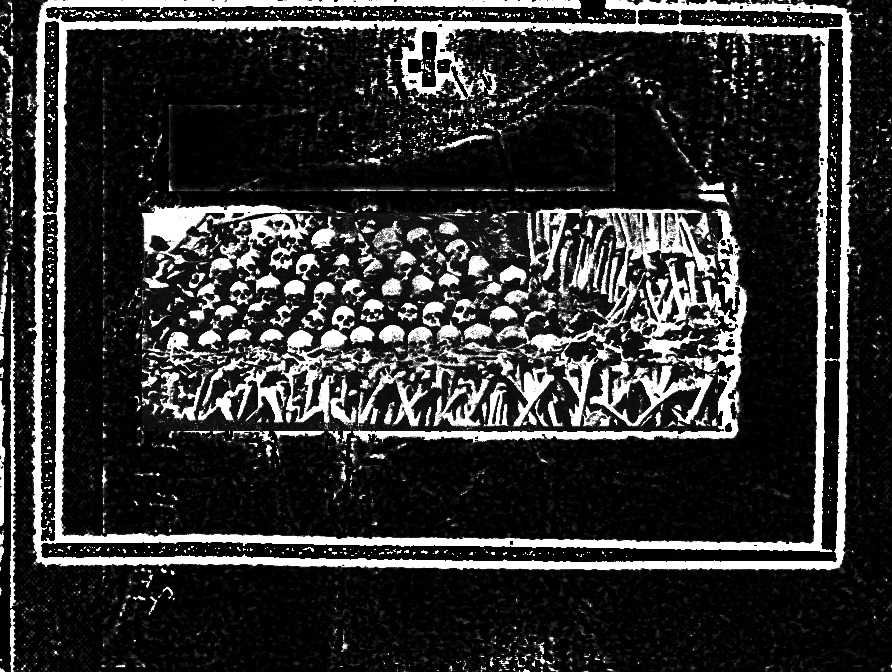
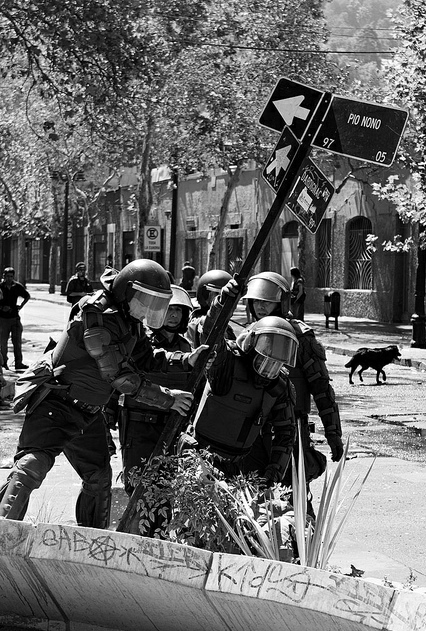
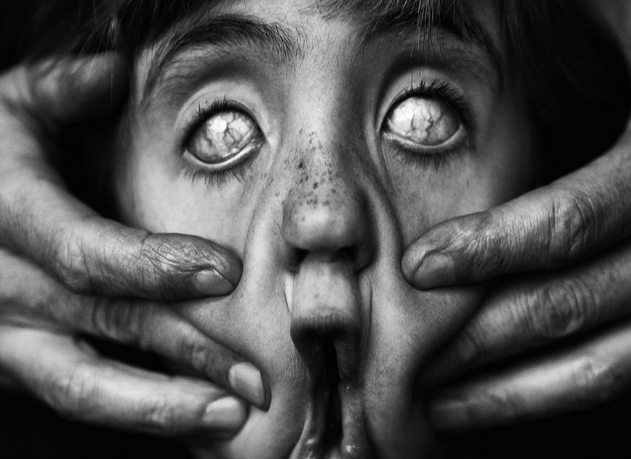


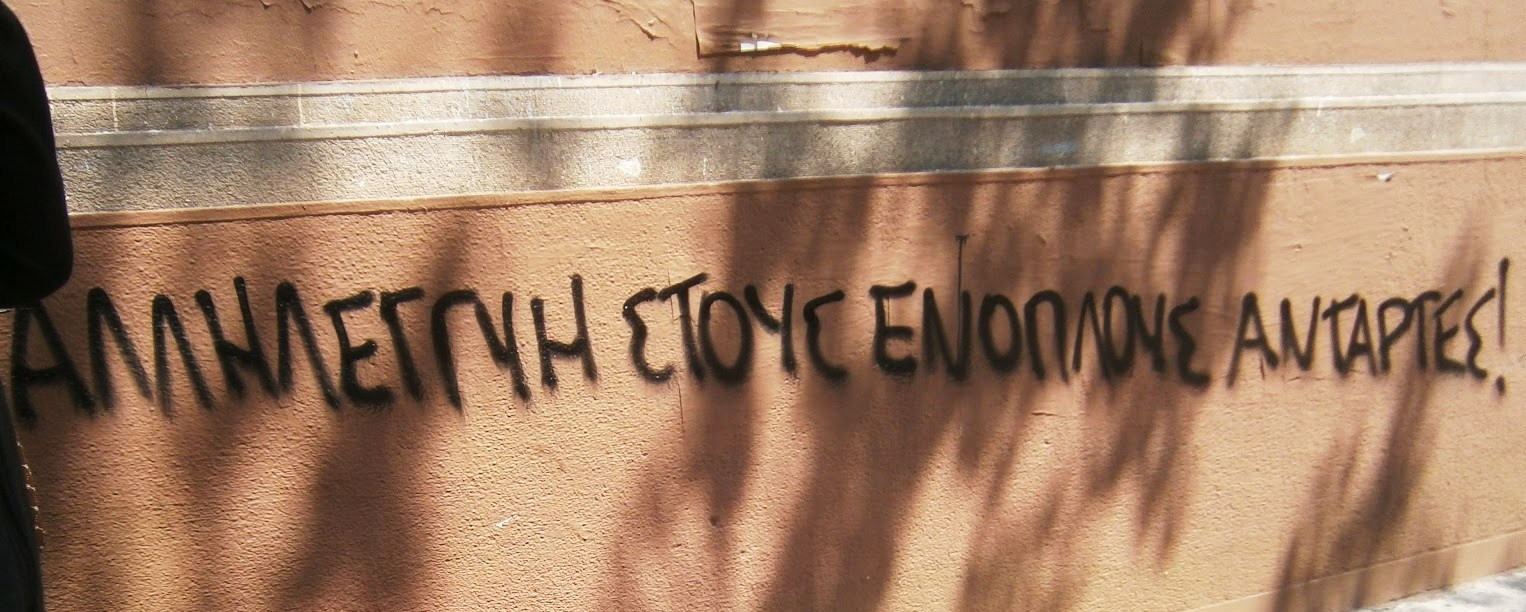

![Eurorepressione - Sulla conferenza a Den Haag sul tema "Anarchia" [corretto]](http://25.media.tumblr.com/tumblr_m0jvngOXtY1qa2163o1_1280.jpg)
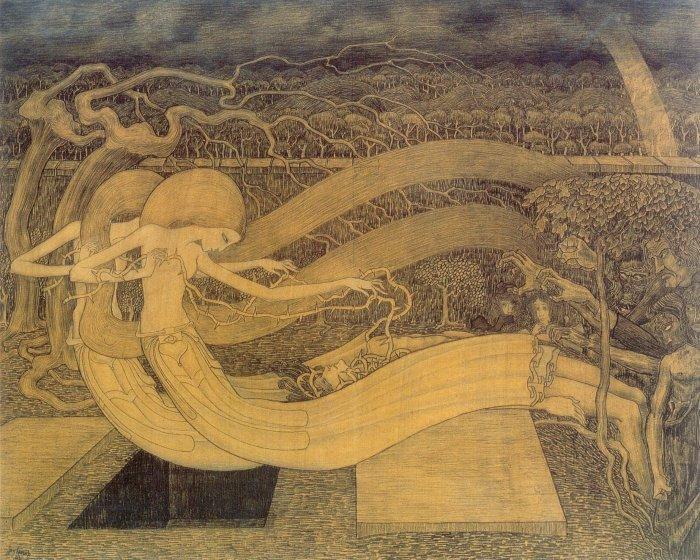
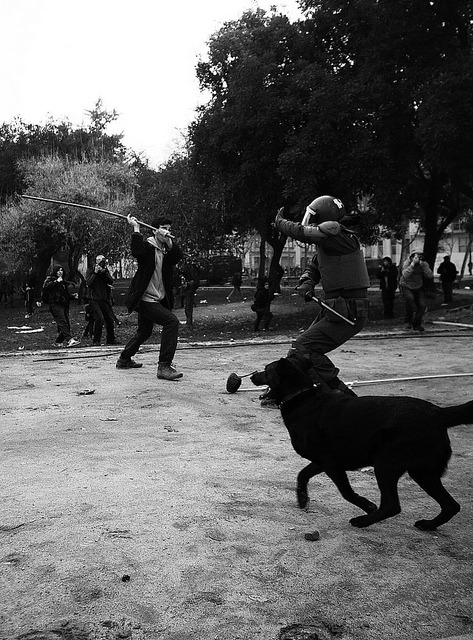
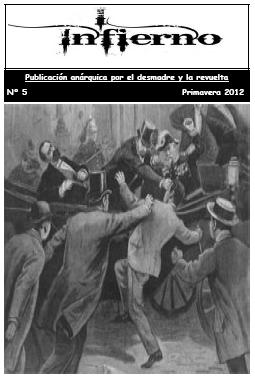
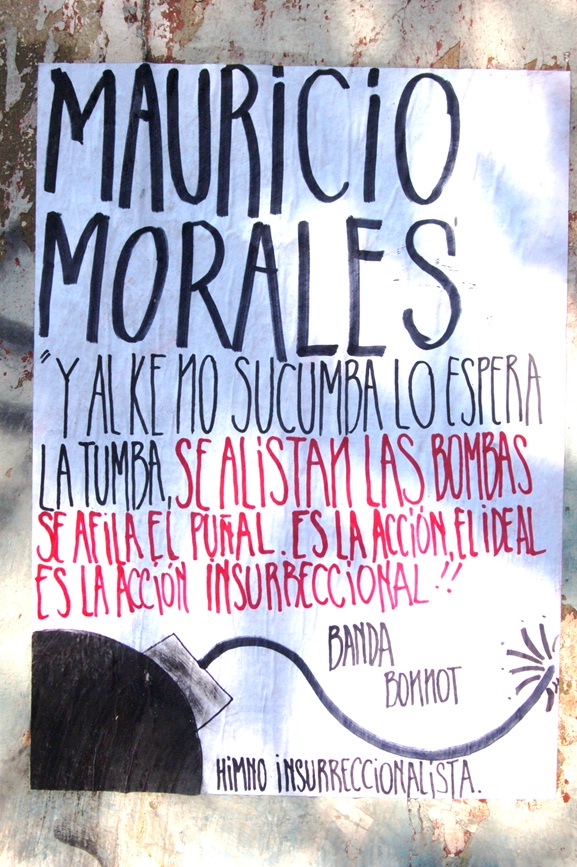
![A tres años de la Partida de Mauricio Morales: De la Memoria a la Calle [Stgo.]](http://metiendoruido.com/wp-content/uploads/2012/05/mmacividad.jpg)

